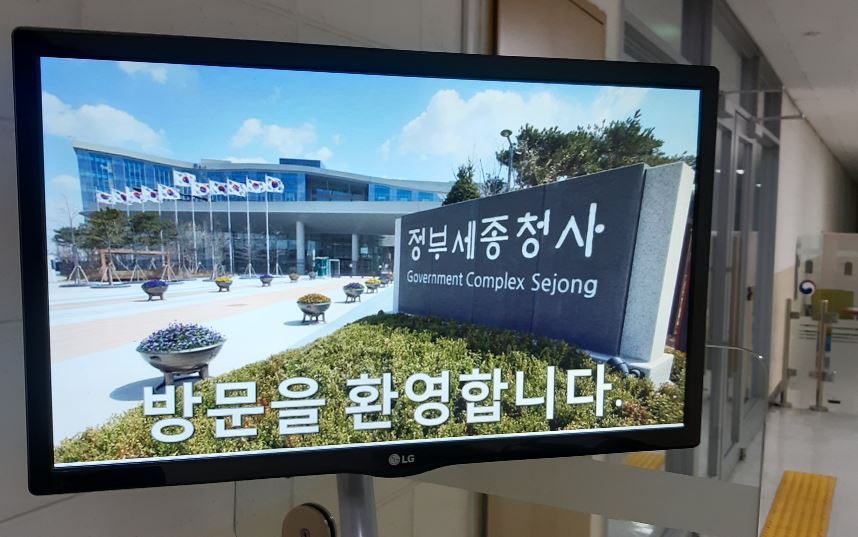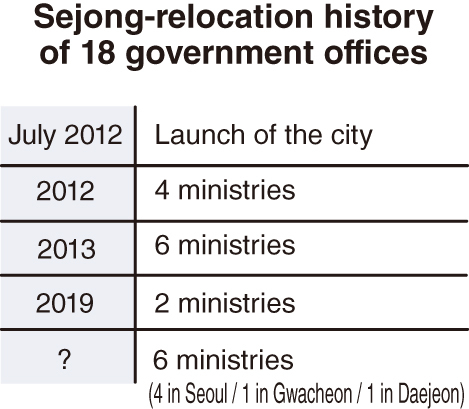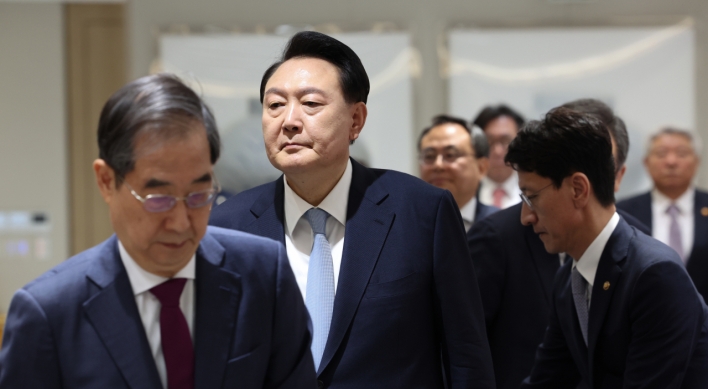[News Focus] 5 ministries enjoy ‘Seoul-area stay’ thanks to law
By Kim Yon-sePublished : Jan. 1, 2020 - 15:26
SEJONG -- Sejong is expanding most quickly among the eight major cities and nine provinces in South Korea. The city is absorbing households from Seoul, Gyeonggi Province, Daejeon and the South and North Chungcheong provinces.
The special self-governing city -- which was founded on July 1, 2012 northwest of Daejeon -- saw its population reach 338,647 as of November 2019, compared to 148,151 five years earlier in November 2014.
The construction of apartments, government complexes and government agency buildings are still ongoing in an active manner in areas such as Eojin-dong, Dodam-dong, Naseong-dong and Areum-dong.
The first batch of the Government Complex Sejong was built in Eojin-dong, where a group of ministries are now headquartered.
The special self-governing city -- which was founded on July 1, 2012 northwest of Daejeon -- saw its population reach 338,647 as of November 2019, compared to 148,151 five years earlier in November 2014.
The construction of apartments, government complexes and government agency buildings are still ongoing in an active manner in areas such as Eojin-dong, Dodam-dong, Naseong-dong and Areum-dong.
The first batch of the Government Complex Sejong was built in Eojin-dong, where a group of ministries are now headquartered.

But the first-tier government offices’ relocation has yet to be completed. Though Sejong marks the eighth anniversary of its establishment in 2020, a third of the 18 ministries are still headquartered in other cities.
The six include four (Ministry of National Defense, Ministry of Foreign Affairs, Ministry of Unification and Ministry of Gender Equality and Family) in Seoul, one (Ministry of Justice) in Gwacheon, just south of Seoul, and one (Ministry of SMEs and Startups) in Daejeon.
Four ministries involving the Ministry of Economy and Finance finished their relocation of headquarters to Sejong by 2012, with another six by 2013.
Among them are the Ministry of Environment, Ministry of Land, Infrastructure and Transport, Ministry of Agriculture, Food and Rural Affairs, Ministry of Employment and Labor, Ministry of Trade, Industry and Energy, Ministry of Health and Welfare and Ministry of Education.
Additionally, two more -- Ministry of Interior and Safety and Ministry of Science and ICT -- joined the new complex in 2019, moving from their former headquarters in Seoul and Gwacheon, respectively.
The remaining six ministries, however, have secured their current locations over the past three administrations led by President Lee Myung-bak (2008-2013), President Park Geun-hye (2013-2017) and current President Moon Jae-in.
Some online commenters are reiterating the fundamental purpose of pushing for the new city during the Roh Moo-hyun administration (2003-2008).
One questioned, “Does the Ministry of Justice need to keep guard over the Government Complex Gwacheon alone?” Another said the Ministry of Gender Equality and Family has little convincing reason to stay at Government Complex Seoul. A Seoul resident said that chances are also low that the nation’s military control, diplomacy and inter-Korean relations would be damaged by a move of the Defense Ministry, Foreign Affairs Ministry and Unification Ministry.

But the ministries are shielded by law from relocation arguments. Another round of law revision is prerequisite for movement of any of the five (Defense, Foreign Affairs, Unification, Justice, and Gender Equality ministries), as these were excluded from the list for movement to Sejong in the previous revision on the Happiness City Act in 2017. Relocation of the Ministry of SMEs and Startups is up to the decision of its minister.
Meanwhile, a recent poll of 3,300 sampled Sejong residents has found that 72 percent of them picked pushing forward establishing the second presidential office and the second National Assembly in the new city as the primary tasks in 2020 of Sejong City Hall.
As for National Assembly Sejong, a consensus was made several years ago as to building a unit as the subordinate headquarters for lawmakers rather than a relocation from Yeouido, Seoul.
Candidate sites for the Assembly unit included land adjacent to Sejong Central Park, a plot in Hapgang-ri, Yeondong-myeon and another beside the Prime Minister’s Office across the city.
But some hurdles still lie in the way. An official of the National Assembly Secretariat in Seoul was quoted by a media outlet as saying that “there is no regulation on the designated deadline for signing a contract between an outsourcing company and us.”
Likewise, calls for setting up another presidential office in the administrative city are growing in the political sector.
Lawmakers with constituencies in Sejong, Daejeon and the South and North Chungcheong provinces are taking the initiative in the establishment of the regional unit of the presidential office.
Though the 2020 budget includes an expenditure plan to break ground on the National Assembly unit building, there is a high possibility that the project will face deadlock until the 21st Assembly launches after the general election, slated for April 2020, according to one government official.
“In case of the presidential office unit, the guard matter is a core factor hampering the Sejong citizens’ request,” the official said.
By Kim Yon-se (kys@heraldcorp.com)










![[KH Explains] How should Korea adjust its trade defenses against Chinese EVs?](http://res.heraldm.com/phpwas/restmb_idxmake.php?idx=644&simg=/content/image/2024/04/15/20240415050562_0.jpg&u=20240415144419)








